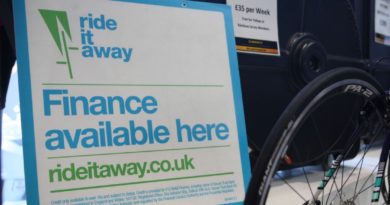What should a bicycle business do if HMRC come knocking?
Advice courtesy of The Association of Cycle Traders
The threat of a tax investigation is an unfortunate part of running a business. With one in ten businesses investigated at some point, it’s something that everyone needs to be prepared for.
HMRC can select businesses at random for inspections, but they may tend to focus on the businesses they consider to be an ‘easy target’. Without the budget for a team of financial advisors, small businesses are more likely to make errors in their tax calculations and so more often than not it will be these small companies that HMRC inspectors target.
If your business is selected it is important that you know what to expect.
Carl Reader, from D&T chartered accountants says, “While the process might be uncomfortable, it is important to stay professional and to also provide all the information that you can to help the enquiry reach a satisfactory conclusion.
“We recommend to all of our clients that they take tax investigation insurance, simply because it allows them to be professionally represented without the fear of additional fees.”
THE ENQUIRY PROCESS
HMRC will send you a notice advising you that an investigation is being undertaken. The letter will include a deadline for your response – usually 30-35 days.
HMRC will usually request submission of all records for the year of enquiry including bank statements, invoices, cheque-books, paying in slips, VAT records and payroll records.
Once you have submitted the information requested you can expect to receive HMRC’s response 30-60 days later. HMRC may accept your submission, or may ask further questions.
Eventually, HMRC will either be satisfied with the information provided and a closure notice will be issued, or the enquiry will go before a tax tribunal for a decision to be made. The majority of cases are resolved before there’s a need for a tribunal hearing.
MINIMISING YOUR RISK
While there is no way to safeguard against investigation, you can take some steps to minimise your risk.
• Submit your tax returns on time
• Be accurate and complete
• Explain any changes before questions get asked
• Keep good records and declare everything
Given the costs that can be incurred by having your accountant draw up all the necessary documents if you are investigated, it is advisable to get tax investigation insurance.
Some accountants have been known to charge up to £150 for this standalone service. Check with your accountant whether you are covered, and if you are being charged extra for this service.
With ACT membership you have tax investigation protection as standard.
For further information contact the ACT on 01273 427 700, or visit www.cycleassociation.uk



